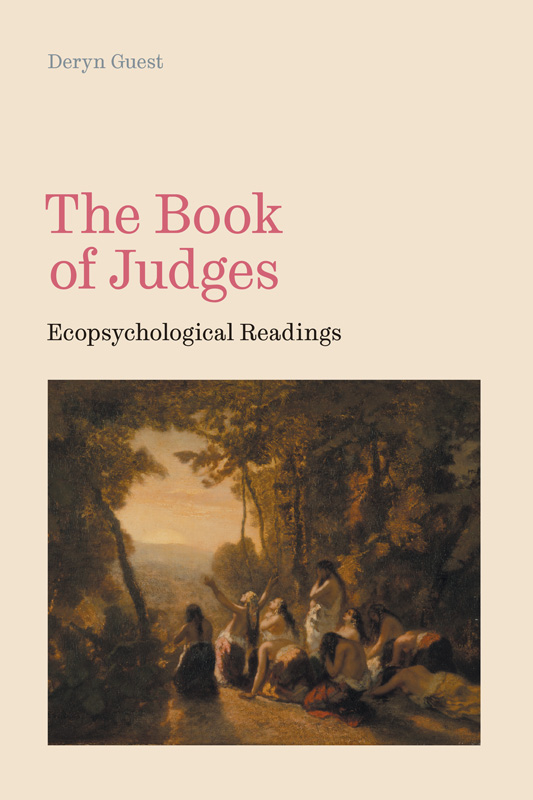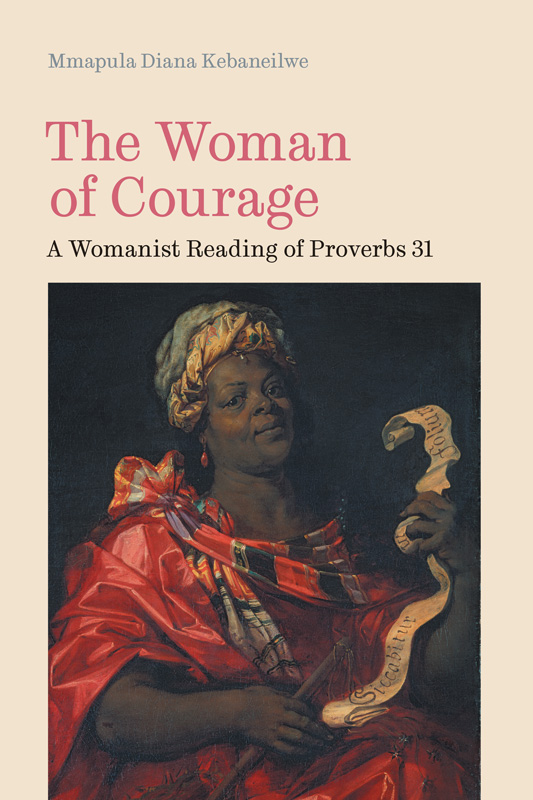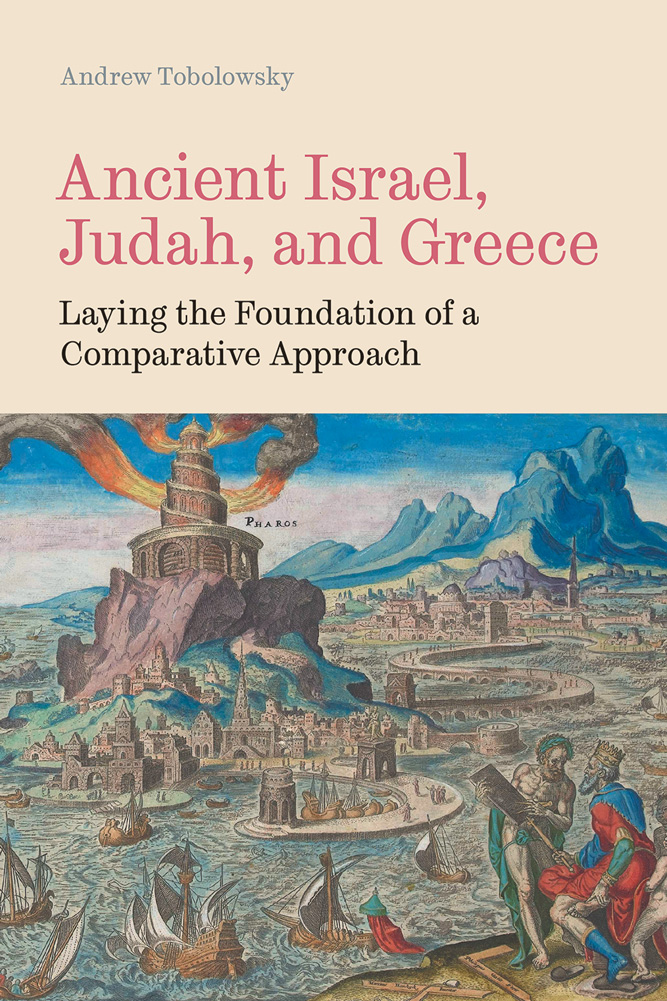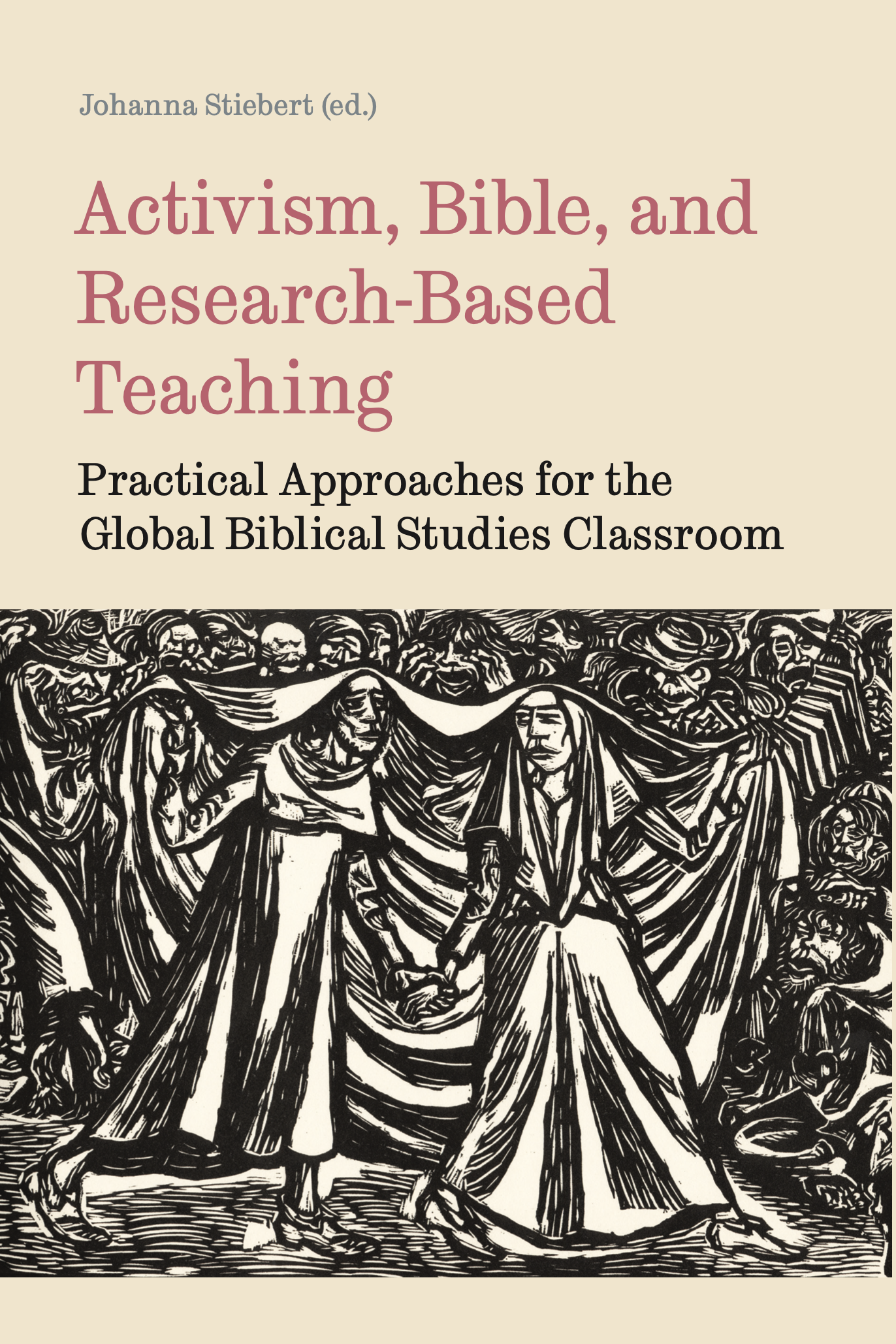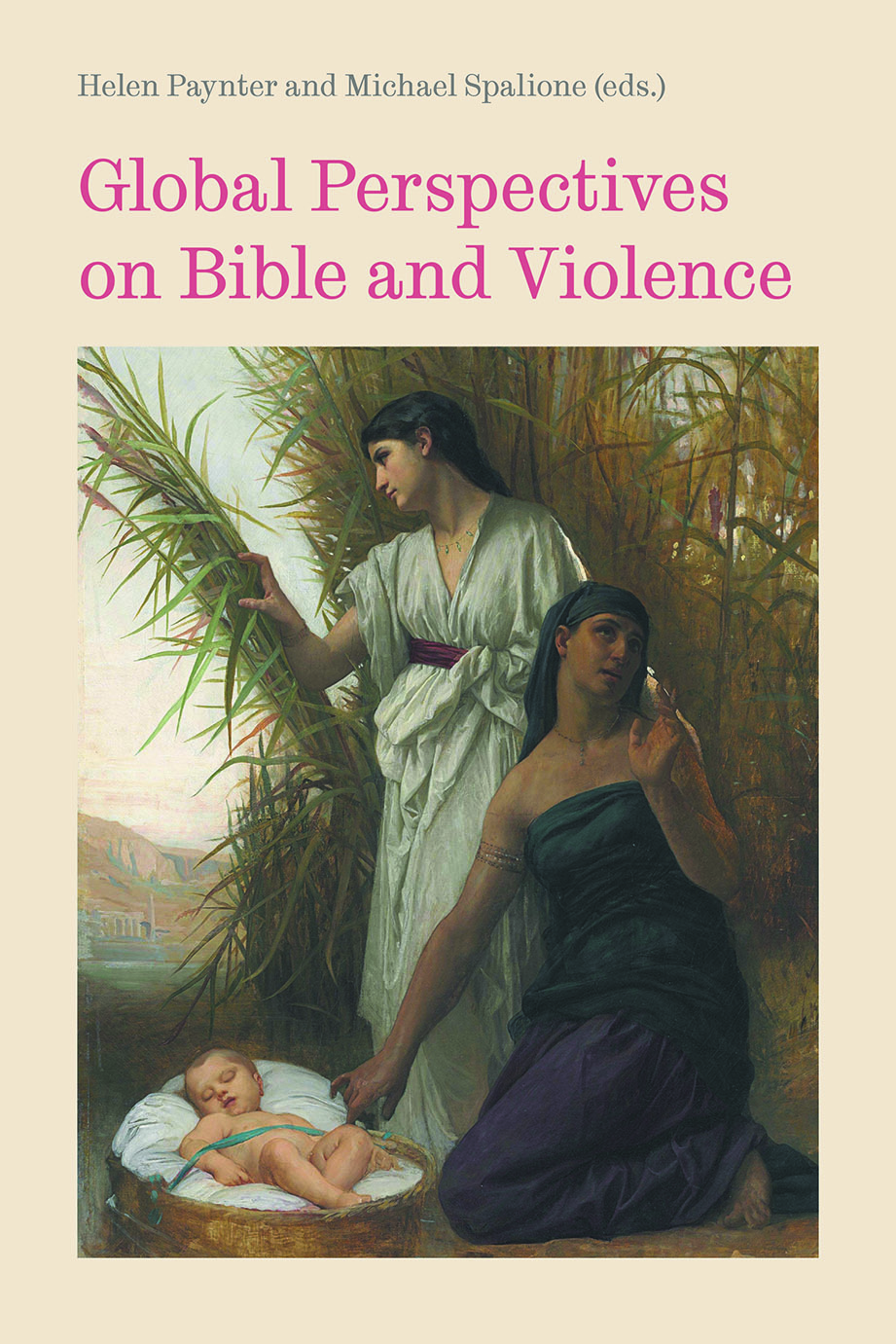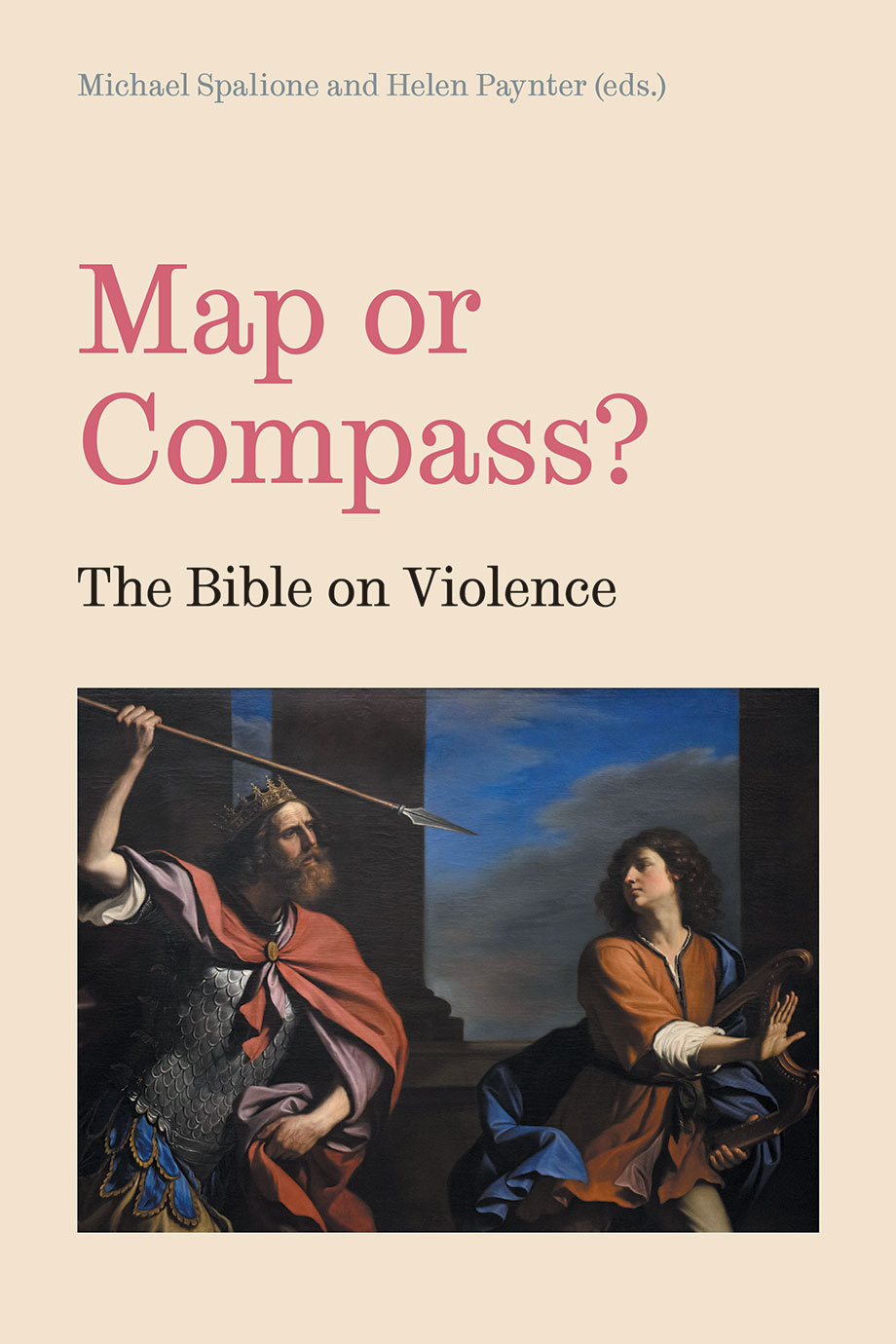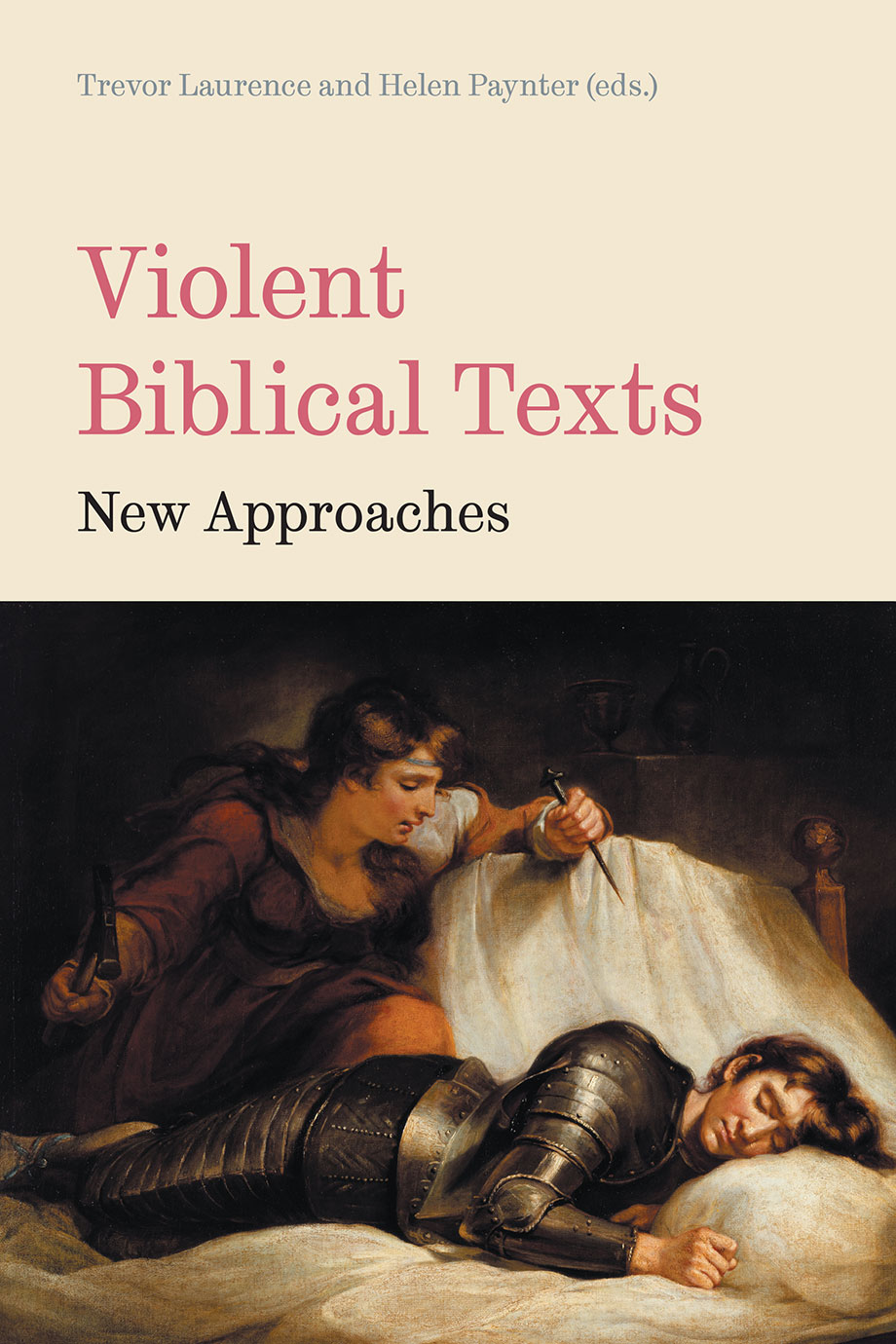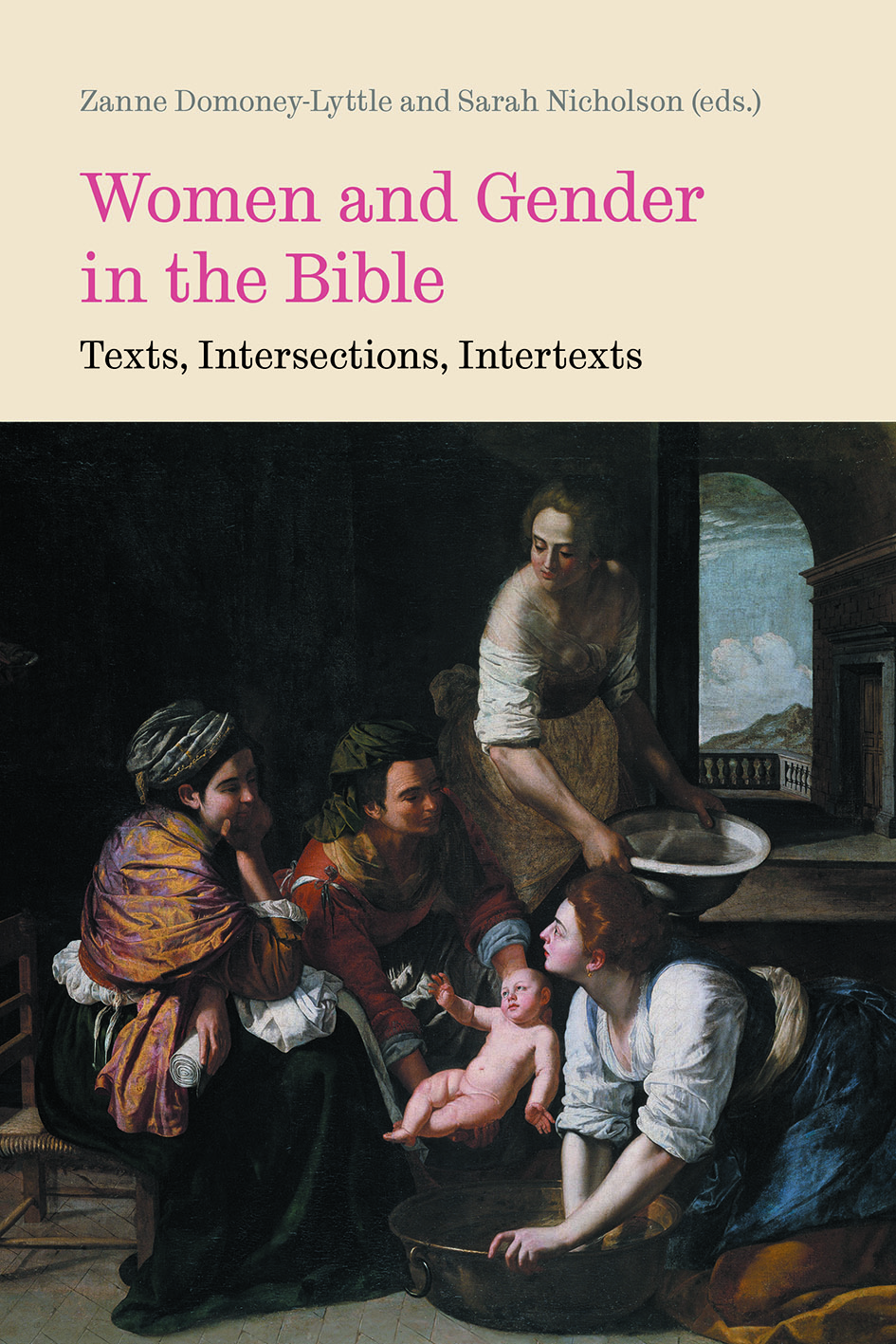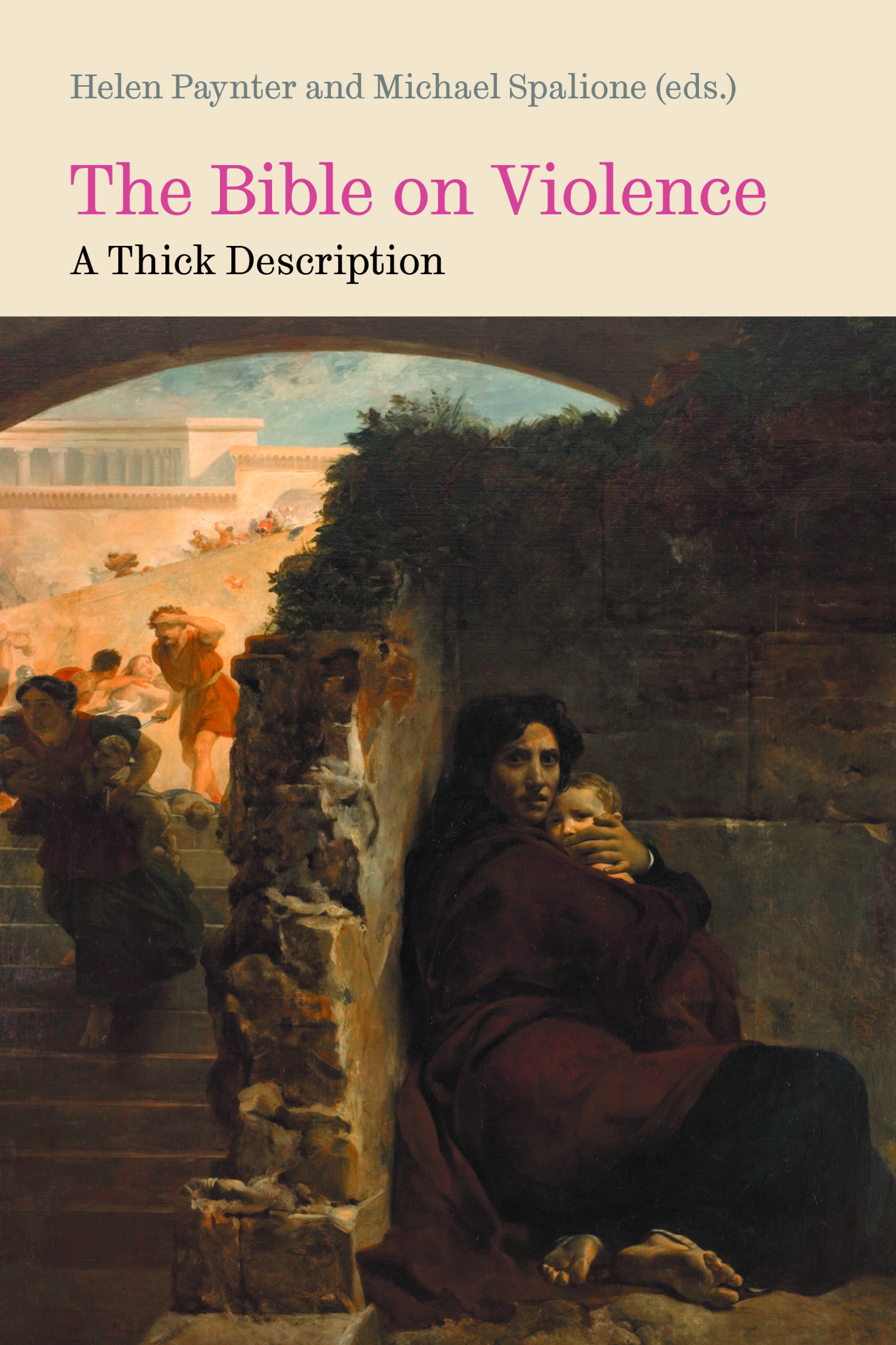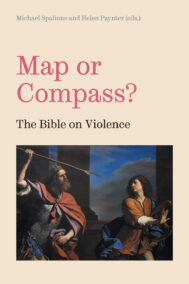The Book of Judges: Ecopsychological Readings
Published: Oct 2025
£60.00
Directly addressing ecological crises and our planetary future, Deryn Guest’s ecopsychological readings present an urgent and profoundly innovative challenge to biblical scholars all over the world. For, when organic connection between humans and the natural world has been lost, indeed even the capacity for such connection profoundly damaged, the complicity of the Bible and its interpretation in this loss must be scrutinised. No longer is it possible to write biblical commentary without asking similar questions to those posed in this volume.
The new dialogue partners Guest brings into the field of biblical scholars are most welcome and most needed. Applying theories of ecopsychology and employing a three-dimensional sensory amplification of scenes from the Book of Judges, Guest brings what has often been relegated as ‘background’ or ‘setting’ imaginatively into the foreground. Readers will find themselves reconsidering mountain-daughter encounters, pondering how standing stones can offer a word from the Gods, how trees and flames participate in navigating human-divine relations and how horses, foxes and lions become collateral damage in those dealings.
A surprising discovery is that a single thread runs through many of these scenes. Guest names it the ‘Changing of the Gods’. It involves the denigration and censure of all things ‘Canaanite’. As the not-us, the not-Christian, not-Jewish, not-Yahwistic, the ‘Canaanite’ is revealed as a projection of our own anxieties and demons on to a convenient Other. The significant consequence of such scapegoating is that we are alienated from the life-giving, numinous encounters that could otherwise happen on every green hill and under every green tree.
A compelling interdisciplinary study, this book is vital reading for all involved in biblical interpretation. It promises not only transformation of the field, but of scholars themselves as they reflect on their own complicity in writing commentaries that alienate their readers from the whisper of stones and the messages of trees.
The Book of Judges: Ecopsychological Readings
£60.00
Directly addressing ecological crises and our planetary future, Deryn Guest’s ecopsychological readings present an urgent and profoundly innovative challenge to biblical scholars all over the world. For, when organic connection between humans and the natural world has been lost, indeed even the capacity for such connection profoundly damaged, the complicity of the Bible and its interpretation in this loss must be scrutinised. No longer is it possible to write biblical commentary without asking similar questions to those posed in this volume.
The new dialogue partners Guest brings into the field of biblical scholars are most welcome and most needed. Applying theories of ecopsychology and employing a three-dimensional sensory amplification of scenes from the Book of Judges, Guest brings what has often been relegated as ‘background’ or ‘setting’ imaginatively into the foreground. Readers will find themselves reconsidering mountain-daughter encounters, pondering how standing stones can offer a word from the Gods, how trees and flames participate in navigating human-divine relations and how horses, foxes and lions become collateral damage in those dealings.
A surprising discovery is that a single thread runs through many of these scenes. Guest names it the ‘Changing of the Gods’. It involves the denigration and censure of all things ‘Canaanite’. As the not-us, the not-Christian, not-Jewish, not-Yahwistic, the ‘Canaanite’ is revealed as a projection of our own anxieties and demons on to a convenient Other. The significant consequence of such scapegoating is that we are alienated from the life-giving, numinous encounters that could otherwise happen on every green hill and under every green tree.
A compelling interdisciplinary study, this book is vital reading for all involved in biblical interpretation. It promises not only transformation of the field, but of scholars themselves as they reflect on their own complicity in writing commentaries that alienate their readers from the whisper of stones and the messages of trees.
The Woman of Courage: A Womanist Reading of Proverbs 31
Published: Oct 2025
£60.00
In The Woman of Courage, Mmapula Diana Kebaneilwe provides a brilliant contextual and inter-textual, womanist analysis of Proverbs 31:10-31. Kebaneilwe critically engages with this well-known pericope’s intertextual context with other biblical texts from the same era. As she renders the Hebrew eshet hayil, she questions conventional patriarchal readings of Prov. 31 and emphasizes the agency, tenacity, and economic might of the ‘woman of courage.’
Kebaneilwe shows that the woman who is celebrated in this biblical text lives in a culture with accentuated gender roles which resonate with the lived experiences of many Batswana women in many ways and at different levels. Like Botswana culture, ancient Israelite culture, as demonstrated throughout the Hebrew Bible, is agrarian, patriarchal, and androcentric. In both worlds, a woman’s worth and dignity are closely associated with her socially prescribed and labour-intensive roles of wife and mother.
This monograph demonstrates that eshet-hayil is impressive to her oppressors, including her husband and the patriarchs in higher authority, who are urged by the overarching voice of the narrator to hold her in high esteem and applaud her for her work and position. The implied praise of the men at the gate shows that the Woman of Courage has transcended one of the fundamental limitations of the patriarchal system, which was that she could never be recognised, praised, or rewarded for her work.
By emphasizing African womanist viewpoints, Kebaneilwe shows that Prov. 31 is not only a critique of patriarchal biblical ideas about women, but also—and perhaps more significantly—a text of empowerment for modern women and everyone else because it provides new perspectives on gender justice issues. The Woman of Courage is a must read for theologians, undergraduate and graduate students and all those interested in the intersection of religion and gender justice.
The Woman of Courage: A Womanist Reading of Proverbs 31
£60.00
In The Woman of Courage, Mmapula Diana Kebaneilwe provides a brilliant contextual and inter-textual, womanist analysis of Proverbs 31:10-31. Kebaneilwe critically engages with this well-known pericope’s intertextual context with other biblical texts from the same era. As she renders the Hebrew eshet hayil, she questions conventional patriarchal readings of Prov. 31 and emphasizes the agency, tenacity, and economic might of the ‘woman of courage.’
Kebaneilwe shows that the woman who is celebrated in this biblical text lives in a culture with accentuated gender roles which resonate with the lived experiences of many Batswana women in many ways and at different levels. Like Botswana culture, ancient Israelite culture, as demonstrated throughout the Hebrew Bible, is agrarian, patriarchal, and androcentric. In both worlds, a woman’s worth and dignity are closely associated with her socially prescribed and labour-intensive roles of wife and mother.
This monograph demonstrates that eshet-hayil is impressive to her oppressors, including her husband and the patriarchs in higher authority, who are urged by the overarching voice of the narrator to hold her in high esteem and applaud her for her work and position. The implied praise of the men at the gate shows that the Woman of Courage has transcended one of the fundamental limitations of the patriarchal system, which was that she could never be recognised, praised, or rewarded for her work.
By emphasizing African womanist viewpoints, Kebaneilwe shows that Prov. 31 is not only a critique of patriarchal biblical ideas about women, but also—and perhaps more significantly—a text of empowerment for modern women and everyone else because it provides new perspectives on gender justice issues. The Woman of Courage is a must read for theologians, undergraduate and graduate students and all those interested in the intersection of religion and gender justice.
Ancient Israel, Judah, and Greece: Laying the Foundation of a Comparative Approach
Published: Nov 2024
£70.00
Andrew Tobolowsky offers a new starting point for comparative investigations into the traditions of the Hebrew Bible and of ancient Greece. Noting a number of shared problems and questions in the study of each corpus, he advocates for a method based on comparing not tradition to tradition but scholarly approach to scholarly approach. He argues that such a method not only helps overcome the problem of parallelomania, and a high philological barrier to entry, but transforms scholars in each discipline into fellow travellers, capable of offering each other useful insights.
By applying this method of comparing scholarly approaches, Tobolowsky considers four crucial questions:
- what do contemporary understandings of ethnic identity mean for the study of these traditions;
- what role should extraliterary evidence play in illuminating them;
- how should we understand the data of genealogical traditions;
- and what do new understandings of the porousness of cultural boundaries in the ancient world mean for the study of foundation traditions.
In each case, he surveys the landscape of contemporary debates in both fields to determine what new ideas hold the most promise for solving intractable problems—and for most successfully moving on from outdated assumptions.
In addition, Ancient Israel, Judah, and Greece particularly emphasizes the usefulness of thinking about the historical development of traditions in the Hebrew Bible through the lens of a Mediterranean context where there is so much more evidence for how traditions were inherited and adapted to work with. Overall, Tobolowsky argues that what each of these comparisons most clearly demonstrates is the crucial importance of completing the shift from a “kernels of truth” based approach to the study of traditions to one where their ongoing dynamism as the medium for redescribing identity and the past is emphasized instead.
Ancient Israel, Judah, and Greece: Laying the Foundation of a Comparative Approach
£70.00
Andrew Tobolowsky offers a new starting point for comparative investigations into the traditions of the Hebrew Bible and of ancient Greece. Noting a number of shared problems and questions in the study of each corpus, he advocates for a method based on comparing not tradition to tradition but scholarly approach to scholarly approach. He argues that such a method not only helps overcome the problem of parallelomania, and a high philological barrier to entry, but transforms scholars in each discipline into fellow travellers, capable of offering each other useful insights.
By applying this method of comparing scholarly approaches, Tobolowsky considers four crucial questions:
- what do contemporary understandings of ethnic identity mean for the study of these traditions;
- what role should extraliterary evidence play in illuminating them;
- how should we understand the data of genealogical traditions;
- and what do new understandings of the porousness of cultural boundaries in the ancient world mean for the study of foundation traditions.
In each case, he surveys the landscape of contemporary debates in both fields to determine what new ideas hold the most promise for solving intractable problems—and for most successfully moving on from outdated assumptions.
In addition, Ancient Israel, Judah, and Greece particularly emphasizes the usefulness of thinking about the historical development of traditions in the Hebrew Bible through the lens of a Mediterranean context where there is so much more evidence for how traditions were inherited and adapted to work with. Overall, Tobolowsky argues that what each of these comparisons most clearly demonstrates is the crucial importance of completing the shift from a “kernels of truth” based approach to the study of traditions to one where their ongoing dynamism as the medium for redescribing identity and the past is emphasized instead.
‘Good Omens’ and the Bible
Published: Jun 2024
£50.00
Good Omens and the Bible provides a diversely rich collection of considerations of apocalypse and apocalypticism, via responses to the reception of the Bible in the landmark cultural icon that is Neil Gaiman and Terry Pratchett’s Good Omens: The Nice and Accurate Prophecies of Agnes Nutter, Witch (1990). These essays explore the perplexing, captivating, and curious interactions between Good Omens and biblical literature.
Interdisciplinary explorations reveal how both the novel and TV series reflects and explodes contemporary ideas about the end times. Filtering references to biblical apocalypses through the lens of popular culture, Good Omens shines a light on the received interpretations of apocalyptic thinking that resonate in the present, revealing in turn something about ourselves.
Together, these essays open up conversations about how Good Omens makes use of religious ideas about textuality, performance, theodicy, and the role of popular culture in the proliferation of those conversations. This book illustrates the ways in which the novel and series are agents in the continuation of cultural debates about important, wide-ranging theological and biblical issues.
‘Good Omens’ and the Bible
£50.00
Good Omens and the Bible provides a diversely rich collection of considerations of apocalypse and apocalypticism, via responses to the reception of the Bible in the landmark cultural icon that is Neil Gaiman and Terry Pratchett’s Good Omens: The Nice and Accurate Prophecies of Agnes Nutter, Witch (1990). These essays explore the perplexing, captivating, and curious interactions between Good Omens and biblical literature.
Interdisciplinary explorations reveal how both the novel and TV series reflects and explodes contemporary ideas about the end times. Filtering references to biblical apocalypses through the lens of popular culture, Good Omens shines a light on the received interpretations of apocalyptic thinking that resonate in the present, revealing in turn something about ourselves.
Together, these essays open up conversations about how Good Omens makes use of religious ideas about textuality, performance, theodicy, and the role of popular culture in the proliferation of those conversations. This book illustrates the ways in which the novel and series are agents in the continuation of cultural debates about important, wide-ranging theological and biblical issues.
When Psychology Meets the Bible
Published: Jun 2023
£85.00
This much-needed biblical studies encounter with the physiological and social sciences demonstrates ways these disciplines relate closely. A group of 17 scholars from across the world and from various psychological persuasions have considered texts—from many parts of the Hebrew Bible and New Testament. The essays recognise the human emotional need of the embodied mind in both literary characters and readers, and respond to it with empathic understanding.
The newness of interpretative approach in this collection anchors its understanding of the texts within recognised, scientific, psychological theories. Refreshing, even exciting, readings are discerned by focusing understanding of the human mind on those writing, and existing in, the biblical texts. This initiative is in significant contrast to a long history of implied psychological exegesis.
Where else, but in the Bible, can such a wide range of human actions, interactions, motivations and tragedies be studied in a variety of social situations? Showcasing the psychological implications of these texts serves as an invitation to continue this new momentum in research. At the same time, the freedom to explore the Bible psychologically has brought the most urgent and pressing psychological struggles to the surface, proving the relevance of all these biblical texts in our present world.
When Psychology Meets the Bible
£85.00
This much-needed biblical studies encounter with the physiological and social sciences demonstrates ways these disciplines relate closely. A group of 17 scholars from across the world and from various psychological persuasions have considered texts—from many parts of the Hebrew Bible and New Testament. The essays recognise the human emotional need of the embodied mind in both literary characters and readers, and respond to it with empathic understanding.
The newness of interpretative approach in this collection anchors its understanding of the texts within recognised, scientific, psychological theories. Refreshing, even exciting, readings are discerned by focusing understanding of the human mind on those writing, and existing in, the biblical texts. This initiative is in significant contrast to a long history of implied psychological exegesis.
Where else, but in the Bible, can such a wide range of human actions, interactions, motivations and tragedies be studied in a variety of social situations? Showcasing the psychological implications of these texts serves as an invitation to continue this new momentum in research. At the same time, the freedom to explore the Bible psychologically has brought the most urgent and pressing psychological struggles to the surface, proving the relevance of all these biblical texts in our present world.
Global Perspectives on Bible and Violence
Published: May 2023
£70.00
This volume brings global perspectives to the fore, in what is the fourth of, at least, five volumes providing resources for researchers and in the classroom exploring the intersection between violence and biblical texts. It is the outcome of proceedings from a 2021 Centre for the Study of Bible and Violence (CSBV) conference, with contributors and participants from sixteen nations.
In addition to the geographical variety of contributions, the fifteen papers in this volume also reflect a group of scholars diverse in their discipline and field of interest. Some papers involve close textual study (such as Richard Middleton’s discussion of the Akedah) while others consider thematic subjects such as the contemporary problem of “Christianism” (Matthew Feldman) or the Bible’s entailment in the fetishization of virginity (Johanna Stiebert). Of particular note are three contributions from African scholars. Louis Ndekha brings the Malawian practice of Mob Justice into dialogue with Luke 6:27-29. Paul Chimhungwe writes on the problematic hermeneutical approaches which have informed the Apostles of Johanne Marange of Zimbabwe, which denies Western medicine to its followers. Lodewyk Sutton studies Psalm 58 to consider whether the imprecatory language used therein might constitute part of a ritual used to overcome trauma.
The CSBV is a postgraduate research and study centre dedicated to working in the twin areas of the interpretation of biblical violence and the weaponization of the Bible.
Global Perspectives on Bible and Violence
£70.00
This volume brings global perspectives to the fore, in what is the fourth of, at least, five volumes providing resources for researchers and in the classroom exploring the intersection between violence and biblical texts. It is the outcome of proceedings from a 2021 Centre for the Study of Bible and Violence (CSBV) conference, with contributors and participants from sixteen nations.
In addition to the geographical variety of contributions, the fifteen papers in this volume also reflect a group of scholars diverse in their discipline and field of interest. Some papers involve close textual study (such as Richard Middleton’s discussion of the Akedah) while others consider thematic subjects such as the contemporary problem of “Christianism” (Matthew Feldman) or the Bible’s entailment in the fetishization of virginity (Johanna Stiebert). Of particular note are three contributions from African scholars. Louis Ndekha brings the Malawian practice of Mob Justice into dialogue with Luke 6:27-29. Paul Chimhungwe writes on the problematic hermeneutical approaches which have informed the Apostles of Johanne Marange of Zimbabwe, which denies Western medicine to its followers. Lodewyk Sutton studies Psalm 58 to consider whether the imprecatory language used therein might constitute part of a ritual used to overcome trauma.
The CSBV is a postgraduate research and study centre dedicated to working in the twin areas of the interpretation of biblical violence and the weaponization of the Bible.
Map or Compass? The Bible on Violence
Published: Oct 2022
£70.00
The interpretation of biblical violence continues to present a complex challenge to interpreters, including those from belief, no belief and religious perspectives. Placing this interpretative task within the frame of generous collaboration, irenic listening, and multidisciplinary scholarship allows new perspectives to surface.
These principles were key to the range of papers given at the second annual conference in 2020 of the Bristol Centre for the Study of Bible and Violence in 2020—a postgraduate research and study centre dedicated to the interpretation of biblical texts of violence.
This edited book includes:
• three chapters which grapple with the violence of the conquest of Canaan —from Paul Copan, William Ford, and Helen Paynter;
• further explorations of violence in Deuteronomy, Judges, Ezekiel and Revelation;
• Mary Magdalene and modern sexual violence;
• Esther and Quentin Tarantino;
• contemporary representations of the crucifixion, forced marriage in Christian pedagogic materials, and a cross-reading of abattoirs
and the crucifixion.
This is the second of, at least, four volumes providing resources for researchers and in the classroom exploring the intersection between violence and biblical texts.
Map or Compass? The Bible on Violence
£70.00
The interpretation of biblical violence continues to present a complex challenge to interpreters, including those from belief, no belief and religious perspectives. Placing this interpretative task within the frame of generous collaboration, irenic listening, and multidisciplinary scholarship allows new perspectives to surface.
These principles were key to the range of papers given at the second annual conference in 2020 of the Bristol Centre for the Study of Bible and Violence in 2020—a postgraduate research and study centre dedicated to the interpretation of biblical texts of violence.
This edited book includes:
• three chapters which grapple with the violence of the conquest of Canaan —from Paul Copan, William Ford, and Helen Paynter;
• further explorations of violence in Deuteronomy, Judges, Ezekiel and Revelation;
• Mary Magdalene and modern sexual violence;
• Esther and Quentin Tarantino;
• contemporary representations of the crucifixion, forced marriage in Christian pedagogic materials, and a cross-reading of abattoirs
and the crucifixion.
This is the second of, at least, four volumes providing resources for researchers and in the classroom exploring the intersection between violence and biblical texts.
Violent Biblical Texts: New Approaches
Published: Oct 2022
£70.00
This volume is one of the fruits of a series of international conferences held at the Centre for the Study of Bible and Violence, Bristol. The thirteen articles included here have been assembled for the specific purpose of offering explicitly religious perspectives on biblical violence from a globally diverse group of Christian scholars.
Each author faces the challenge of how to interpret violent biblical texts in ways that remain situated within a Christian construct of the Bible. These raise major challenges—via ethically confounding texts—to providing a theologically coherent interpretation of biblical violence. Each writer, in turn, offers creative and constructive ways forward in dealing with the most problematic biblical material, based on two criteria:
• addressing a particular text or hermeneutical issue in view;
• advancing an approach that is applicable to other biblical texts.
The hermeneutical approaches are neither naïve nor sceptical but rather seek to off er innovative and fruitful avenues for interpreting the text from within the Christian religion.
This book offers a variety of resources to aid the interpretation from within a specifically Christian frame of reference. Of particular note is the round-table discussion, where three leading scholars in the study of the Canaanite conquest (Paul Copan, David Firth and William Ford) dialogue with one another on the subject, in a conversation moderated by Helen Paynter.
Violent Biblical Texts: New Approaches
£70.00
This volume is one of the fruits of a series of international conferences held at the Centre for the Study of Bible and Violence, Bristol. The thirteen articles included here have been assembled for the specific purpose of offering explicitly religious perspectives on biblical violence from a globally diverse group of Christian scholars.
Each author faces the challenge of how to interpret violent biblical texts in ways that remain situated within a Christian construct of the Bible. These raise major challenges—via ethically confounding texts—to providing a theologically coherent interpretation of biblical violence. Each writer, in turn, offers creative and constructive ways forward in dealing with the most problematic biblical material, based on two criteria:
• addressing a particular text or hermeneutical issue in view;
• advancing an approach that is applicable to other biblical texts.
The hermeneutical approaches are neither naïve nor sceptical but rather seek to off er innovative and fruitful avenues for interpreting the text from within the Christian religion.
This book offers a variety of resources to aid the interpretation from within a specifically Christian frame of reference. Of particular note is the round-table discussion, where three leading scholars in the study of the Canaanite conquest (Paul Copan, David Firth and William Ford) dialogue with one another on the subject, in a conversation moderated by Helen Paynter.
Women and Gender in the Bible: Texts, Intersections, Intertexts
Published: Dec 2021
£60.00
This volume has its origins in a conference entitled 'Women and Gender in the Bible and the Ancient World' (University of Glasgow, 2019), a symposium with a deliberately broad scope to encourage fresh research that might transcend already-defined categories. With responses from both emerging and established academics, as well as professionals outside the academy, this collection offers a breadth of explorations of the gendered landscapes and horizons that construct, and subvert, biblical womanhood, and its reception. Familiar figures such as Mary Magdalene, Eve, and Tamar are treated alongside unnamed women whose anonymity is revealing.
Exploring a range of performances from ritual to resistance, and from storytelling to sex work, the contributors aim to capture connections between biblical figures and their socio-political worlds, their afterlives and reworkings, and their continued resonances for today's readers and scholars of the Bible. Questions are raised about gendered status, transformation, territorialization and oppression of biblical women: the significance and complexity of their relationships within and outwith the texts that both constitute their confinements and provoke new lineages.
Women and Gender in the Bible offers challenging perspectives on our understanding of how we can establish creative transactions between ancient patriarchal cultures and modern post-industrial cultures via counter-readings, misreadings and outraged readings. Casting off the intolerable weight of hundreds of years of androcentric reception is both a starting point and an ultimate goal.
Women and Gender in the Bible: Texts, Intersections, Intertexts
£60.00
This volume has its origins in a conference entitled 'Women and Gender in the Bible and the Ancient World' (University of Glasgow, 2019), a symposium with a deliberately broad scope to encourage fresh research that might transcend already-defined categories. With responses from both emerging and established academics, as well as professionals outside the academy, this collection offers a breadth of explorations of the gendered landscapes and horizons that construct, and subvert, biblical womanhood, and its reception. Familiar figures such as Mary Magdalene, Eve, and Tamar are treated alongside unnamed women whose anonymity is revealing.
Exploring a range of performances from ritual to resistance, and from storytelling to sex work, the contributors aim to capture connections between biblical figures and their socio-political worlds, their afterlives and reworkings, and their continued resonances for today's readers and scholars of the Bible. Questions are raised about gendered status, transformation, territorialization and oppression of biblical women: the significance and complexity of their relationships within and outwith the texts that both constitute their confinements and provoke new lineages.
Women and Gender in the Bible offers challenging perspectives on our understanding of how we can establish creative transactions between ancient patriarchal cultures and modern post-industrial cultures via counter-readings, misreadings and outraged readings. Casting off the intolerable weight of hundreds of years of androcentric reception is both a starting point and an ultimate goal.
The Bible on Violence: A Thick Description.
Published: July 2020
£70.00
In June 2019 the Centre for the Study of Bible and Violence (CSBV) held its inaugural academic conference, and we are delighted to present this collection of papers drawn from those presented at the event. The centre is a postgraduate research and study centre dedicated to working in the area of the interpretation of biblical texts of violence. This wide-ranging collection reflects the centre's core values of generous collaboration, irenic listening, and multidisciplinary scholarship.
Biblical violence presents a complex challenge to the biblical interpreter, the cultural commentator and to belief communities. In the pluriformity of interpretative approaches, the violent texts of the Bible have been taken up in ways that sometimes advance and sometimes challenge violence. Thus, biblical violence cannot be 'solved' by the application of a single hermeneutical lens: this is a multidisciplinary and intercommunal problem requiring a range of approaches.
With contributions from both emerging and established academics, and scholars from several different belief traditions, and none, this volume both offers and models a 'thick description' of biblical violence. Two papers, including our keynote address from James Crossley, critically consider the use of biblical texts for the promotion of violence. A cluster of papers offer novel interpretive approaches to a wide range of texts of biblical violence, from both testaments and a range of genres. A further section brings the Bible into conversation with diverse elements of modern violence, from Grenfell Tower to suicide bombing. In the final part, the focus is on sexual violence, including a critical discourse analysis of divorce sermons and an exploration of the value to modern abuse survivors of naming Jesus as the victim of sexual abuse.
The Bible on Violence: A Thick Description.
£70.00
In June 2019 the Centre for the Study of Bible and Violence (CSBV) held its inaugural academic conference, and we are delighted to present this collection of papers drawn from those presented at the event. The centre is a postgraduate research and study centre dedicated to working in the area of the interpretation of biblical texts of violence. This wide-ranging collection reflects the centre's core values of generous collaboration, irenic listening, and multidisciplinary scholarship.
Biblical violence presents a complex challenge to the biblical interpreter, the cultural commentator and to belief communities. In the pluriformity of interpretative approaches, the violent texts of the Bible have been taken up in ways that sometimes advance and sometimes challenge violence. Thus, biblical violence cannot be 'solved' by the application of a single hermeneutical lens: this is a multidisciplinary and intercommunal problem requiring a range of approaches.
With contributions from both emerging and established academics, and scholars from several different belief traditions, and none, this volume both offers and models a 'thick description' of biblical violence. Two papers, including our keynote address from James Crossley, critically consider the use of biblical texts for the promotion of violence. A cluster of papers offer novel interpretive approaches to a wide range of texts of biblical violence, from both testaments and a range of genres. A further section brings the Bible into conversation with diverse elements of modern violence, from Grenfell Tower to suicide bombing. In the final part, the focus is on sexual violence, including a critical discourse analysis of divorce sermons and an exploration of the value to modern abuse survivors of naming Jesus as the victim of sexual abuse.

